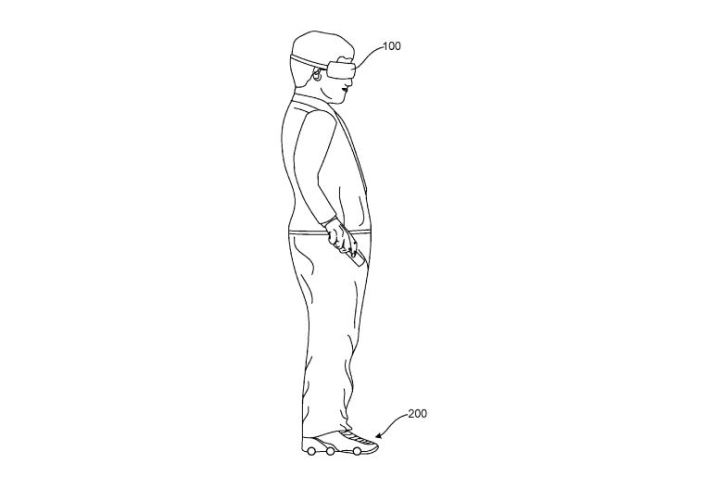
Virtual reality can be an immersive experience, but it does sometimes have some limits. Google, though, has patented shoes which can break through virtual reality by making it more enveloping for consumers.
The patent, originally filed on May 9, 2018, details shoes for helping users move through virtual environments. The shoewear mentioned in Google’s filing could be motorized, with a flexible region on the bottom, and a sensor for which a computer or headset can track to create an endless movement in the virtual world.
“In a system and methods, in accordance with implementations described herein, motorized footwear may be tracked by the system as the user physically moves, for example, walking in the physical environment. The physical movement can be translated into virtual movement in the virtual environment. Motor mechanisms of the motorized footwear may be actuated, based on, for example, a detected physical position in the physical environment of the footwear,” explains Google.
Google’s patent also provides several explanations of how the motor system on board the shows would work. The motor would apparently provide power to a separate locomotion device, which can then, in turn, move a belt on the shoewear that will force movements to stop once the user enters a specific distance or breaks a boundary.
“Actuation of the motor may, in turn, actuate a locomotion device of the motorized footwear, to move the motorized footwear back in a return zone defined within the operational zone. This may allow the user to walk while remaining within a defined physical space in the physical environment,” explains Google.
Google is not the only company which is looking into changing the way consumers interact with virtual reality. There was a previous project from a research group which involved tricking the brain to solve the infinite walking program posed with VR headsets.
A group of scientists from EPFL and ETH Zurich also worked to develop thin and light VR gloves which aim to help virtual reality users touch virtual objects. Considering that current VR gloves are rather heavy, the experience looks to be very promising for consumers.
U.K. entrepreneur Mark Towner also created a cockpit-style simulator which allows consumers to swap out seats for different VR experiences.


